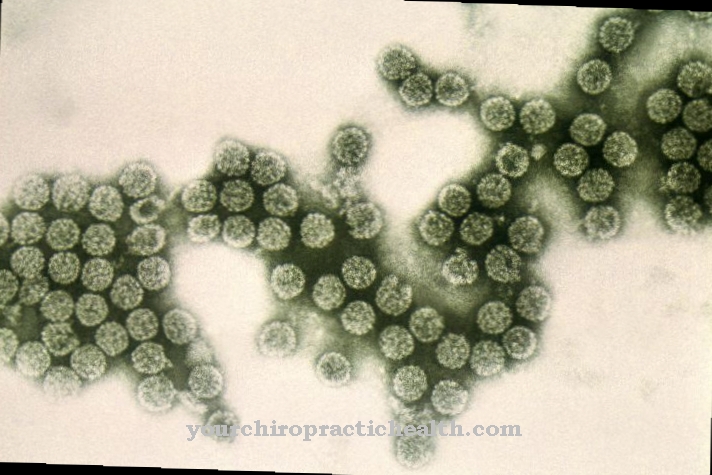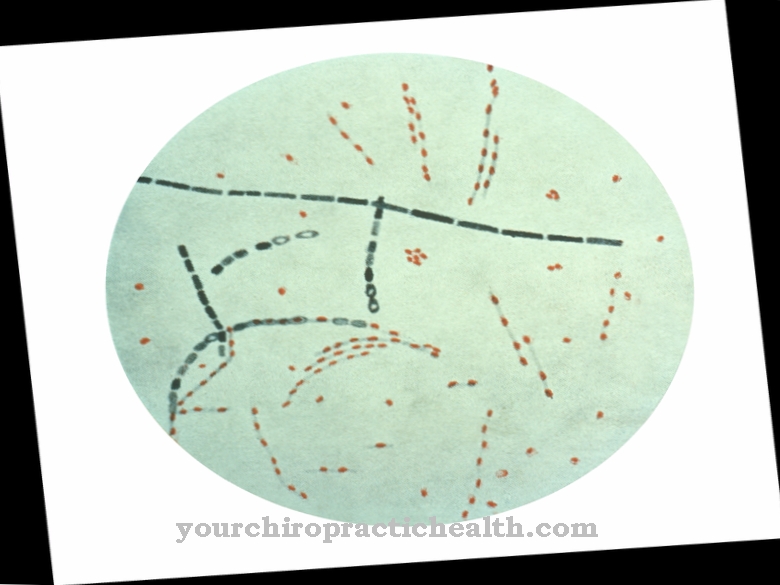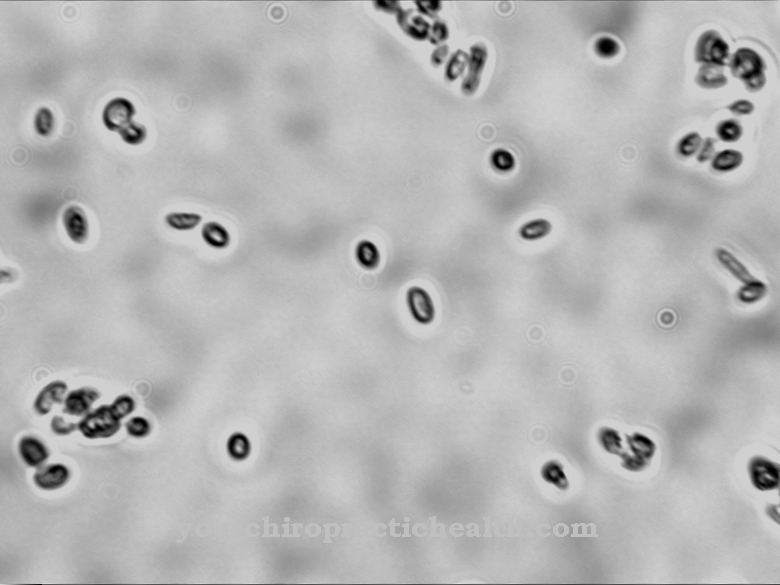Of the Bacillus Calmette-Guérin (BCG) is a bacterium that was developed by the French Albert Calmette and Camille Guérin. In some countries it is used as an effective live vaccine against some forms of tuberculosis, but it is also considered a promising immunotherapy in the fight against bladder cancer. Especially in children, Bacillus Calmette-Guérin has a positive effect on the course of tuberculosis and prevents serious complications.
What is the Bacillus Calmette-Guérin?
The bacterium Bacillus Calmette-Guérin, which was developed through repeated breeding, belongs to the mycobacteria strain. The bacterium originally comes from a cow that developed tuberculosis mastitis.
After it was discovered by Edmond Nocard in 1901, the French Albert Calmette and Camille Guérin continued the research. They cultivated the strain of the mycobacterium in nutrient media and observed a weakening of the infection power. The attenuated, virulent Bacillus Calmette-Guérin was successfully used as a live vaccine against tuberculosis from 1921 and genetically developed. The vaccination is carried out as an intracune live vaccination, but cannot prevent infection or spread of the tuberculosis germs.
BCG can now protect children in particular against some forms of tuberculosis disease. However, its effectiveness against the most common form of tuberculosis, pulmonary tuberculosis, is not sufficient in children or adults. The BCG vaccination, on the other hand, reliably prevents complications of tuberculosis, such as miliary tuberculosis or tuberculous meningitis, which are feared especially in children.
Occurrence, Distribution & Properties
Tuberculosis (TB) is an infectious disease caused by bacteria. Different types of TB bacteria cause different forms of the disease. The most common type of TB is transmitted through the airways and causes infection in the lungs. Although tuberculosis can now be cured with [antibiotics]], it can lead to life-threatening complications, especially in immunodeficient patients.
In the course of the disease, other organs such as meninges, pleura, bones, urinary tract and skin can also be affected by the bacteria.
The contagious infectious disease is mainly transmitted by airborne droplets. The tuberculosis pathogen Mycobacterium bovis can also be passed on to humans through raw cow's milk.
Around a third of the world's population has tuberculosis. However, a healthy immune system can prevent the onset of the disease and also protects against infection. Frequent travelers should have their doctor tested regularly
Meaning & function
The effectiveness of a BCG vaccination is now considered controversial in the medical community. There are several reasons for this. The Standing Vaccination Commission (STIKO) at the Robert Koch Institute has not recommended the use of the bacterium as a vaccine in Germany since 1998 because its effectiveness cannot be reliably proven.
The vaccination protection through the BCG vaccination could be proven in meta-analyzes in only 50 percent of the pulmonary tuberculosis in this country. The vaccine is currently no longer approved for this indication throughout Germany because of the frequently undesirable side effects and complications.
Furthermore, changed test results were found in patients who were vaccinated once with the Bacillus Calmette-Guérin. A positive test result can often be observed in the tuberculin skin test, even in cases in which there is no infection by tuberculosis. In the case of those affected, a swelling of a circumference greater than 15 mm in diameter is assessed as positive. Because the informative value of a tuberculin skin test is limited, specialists in Germany use the gamma interferon blood test for patients with BCG vaccination to detect an infection.
In other countries, however, the use of Bacillus Calmette-Guérin is considered sensible, as there are sometimes different epidermiological conditions. Anyone planning long-term stays in these countries should therefore be vaccinated with BCG. However, BCG vaccination will not work in people living in tropical and subtropical areas. Experts suspect that the reason for this lies in the immunity that the inhabitants have built up against the mycobacteria species that are common there.
You can find your medication here
➔ Medicines against coughs and coldsIllnesses & ailments
Bacillus Calmette-Guérin has been used successfully to combat bladder cancer since 1976. Many patients require effective immunotherapy after surgical removal of a tumor in the urinary bladder. It is intended to prevent this disease from occurring again and also to stimulate the body's own cells to defend themselves against tumors.
The cancer patient receives the processed living BCG bacteria as an irrigation directly into the bladder. BCG instillation is done through a thin catheter that runs through the urethra. After about two hours, during which the solution remains in the bladder, the catheter is removed again. Since the Bacillus Calmette-Guérin causes local inflammation there, the body's own defense cells can be activated in this way. If the patients tolerate this treatment well, a total of six BCG treatments will be carried out at weekly intervals. Immunotherapy generally has no side effects and only causes a two-day cystitis and brief flu-like symptoms, which are typical side effects of treatment.
























.jpg)



